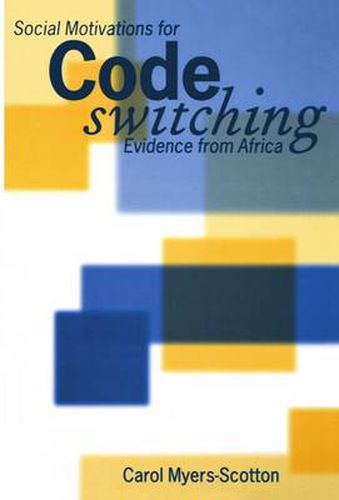Readings Newsletter
Become a Readings Member to make your shopping experience even easier.
Sign in or sign up for free!
You’re not far away from qualifying for FREE standard shipping within Australia
You’ve qualified for FREE standard shipping within Australia
The cart is loading…






Codeswitching may be broadly defined as the use of two or more linguistic varieties in the same conversation. Using data from multilingual African context, Carol Myers-Scotton advances a theoretical argument which aims at a general explanation of the motivations underlying the phenomenon. She treats codeswitching as a type of skilled performance, not as the ‘alternative strategy’ of a person who cannot carry on a conversation in the language in which it began. Speakers exploit the socio=psychological values associated with different linguistic varieties in a particular speech community: by switching codes speakers negotiate a change in social distance between themselves and other participants in a conversation. Switching between languages has much in common with making stylistic choices within the same language: it is as if bilingual and multilingual speakers have an additional style at their command when they engage in codeswitching.
_
$9.00 standard shipping within Australia
FREE standard shipping within Australia for orders over $100.00
Express & International shipping calculated at checkout
Codeswitching may be broadly defined as the use of two or more linguistic varieties in the same conversation. Using data from multilingual African context, Carol Myers-Scotton advances a theoretical argument which aims at a general explanation of the motivations underlying the phenomenon. She treats codeswitching as a type of skilled performance, not as the ‘alternative strategy’ of a person who cannot carry on a conversation in the language in which it began. Speakers exploit the socio=psychological values associated with different linguistic varieties in a particular speech community: by switching codes speakers negotiate a change in social distance between themselves and other participants in a conversation. Switching between languages has much in common with making stylistic choices within the same language: it is as if bilingual and multilingual speakers have an additional style at their command when they engage in codeswitching.
_